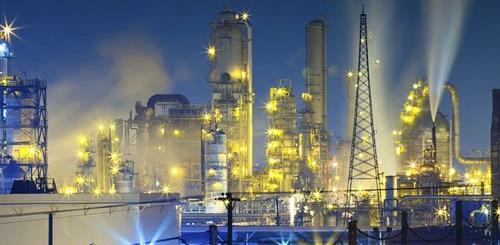International
Renewables in the Arab world: a new phase by APICORP Energy Research

Over the past decade, several Arab countries have announced ambitious renewable-energy targets. With power demand across the region expected to grow at 9.9 per cent a year until 2020, governments are keen to increase the share of renewables in the power mix. A shortage of gas and, in some countries, increasing reliance on liquid fuels, a key product for export, have also added to the urgency of energy diversification while environmental concerns increase.
But progress has been mixed, as net energy importers and net energy exporters face different realities. To support their renewable sectors, countries such as Jordan and Egypt introduced feed-in tariffs (FiTs), tax exemptions, and power-purchase agreements (PPAs). On the other hand, energy-exporting countries have done little to incorporate renewables, as they continue to rely on cheap-to-extract conventional sources to meet rising electricity demand. Falling technology prices have given some countries an opportunity to move towards increasingly cost-competitive renewable energy, while government support, like in other parts of the world, will be instrumental in driving the growth of renewables in the region.
Other net-exporting countries are struggling to kick start their programs. Large oil or gas reserves and cheap extraction costs mean that hydrocarbons continue to meet rising demand in countries like Saudi Arabia, Kuwait, and Qatar. Policy uncertainty and the lack of an efficient regulatory framework are mainly responsible for slow progress.
In 2012, the King Abdullah City for Atomic and Renewable Energy announced plans to invest $109bn to produce 41GW of solar by 2032 in the kingdom. But little progress has been made so far. Given the large amount of investment required to reach this ambitious target, it is highly unlikely that the government will meet its renewable targets for now. Other countries, such as Kuwait, have declared a 15 per cent renewable-energy target by 2020 but have only selected preferred bidders for its 50MW Al-Shagaya CSP plant; while Qatar, Oman, and Bahrain have made minor investments with no significant additions expected soon.
Despite many claims that renewable energy will never reach its potential – unless subsidies are phased out – fuel subsidies are not the main constraint for renewable development and other factors play a more important role. One problem lies in the electricity-market structure in Arab countries. Almost all rely on a state-owned wholesale buyer to buy and sell electricity.
Government wholesale buyers decide the purchase price of electricity from generators as well as the selling price to consumers. If governments want to keep prices low for end-consumers, there is nothing to prevent them from incentivising renewable-energy sources in the same way they subsidise conventional sources.
There are many reasons to be optimistic about the future of renewables in the region. Net-importing countries, driven by their desire to reduce dependency on fuel imports even in a period of low oil prices, will continue to lead in investment and deployment of renewable energy. But financing is becoming more challenging in the current environment and these countries need to continue developing their regulatory framework to attract investment into this sector. For net-exporting countries – with the exception of the UAE – renewables will take a back seat as they continue to rely primarily on conventional sources for additional capacity in the coming years and will use demand-side efficiency and price reform as measures to tackle rising consumption. But already the region has received some of the lowest renewable-energy prices awarded globally for both PV and wind and, with some of the best resources in the world, renewable energy has great potential in the Arab world. But this needs governments to rise to the challenge and improve the regulatory and investment environment to attract investment in one of the fastest-growing energy markets.
-

 Banking & Finance1 month ago
Banking & Finance1 month agoOman Oil Marketing Company Concludes Its Annual Health, Safety, Environment, and Quality Week, Reaffirming People and Safety as a Top Priority
-

 News1 month ago
News1 month agoJamal Ahmed Al Harthy Honoured as ‘Pioneer in Youth Empowerment through Education and Sport’ at CSR Summit & Awards 2025
-

 Economy2 months ago
Economy2 months agoPrime Minister of India Narendra Modi to Visit the Sultanate of Oman on 17-18 December
-

 Economy2 months ago
Economy2 months agoOman’s Net Wealth Reaches $300 Billion in 2024, Poised for Steady Growth
-

 News2 months ago
News2 months agoIHE Launches Eicher Pro League of Trucks & Buses in Oman
-

 News2 months ago
News2 months agoLiva Insurance Honored with ‘Insurer of the Year’ Award for 2025
-

 OER Magazines1 month ago
OER Magazines1 month agoOER, December 2025
-

 News1 month ago
News1 month agoAI Security Conference 2025 Hosted by Securado Highlights the Changing Cybersecurity Landscape





























You must be logged in to post a comment Login